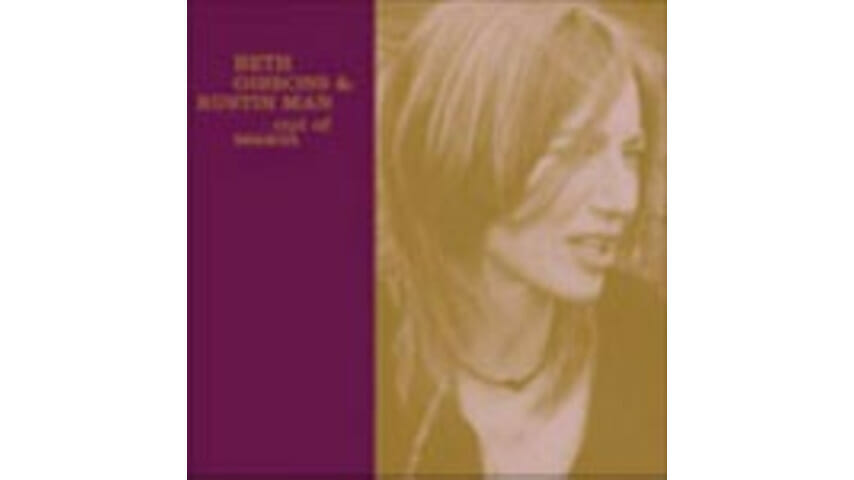
As the vocal instrument of Portishead, Beth Gibbons was the centerpiece of 1994’s Dummy, a trip-hop landmark and one of the great albums of the 1990s. Embedded in Geoff Barrow’s avant-garde sound collages, Gibbons’ unmistakable vocals, at once icy and in-your-ear intimate, cast an eerily existential spell. Her voice was such an integral part of Portishead’s sound that it was virtually impossible to consider it apart from the group’s aural totality; could that otherworldly voice possibly have a life of its own? That’s the question Out of Season— her collaboration with former Talk Talk member, multi-instrumentalist Paul “Rustin Man” Webb—endeavors to answer.
A photograph in the CD booklet, shot from the edge of a vast and empty lake, pictures a ruined dock in the foreground, while in the distance forested hills rise above the far shore, and above them loom overcast skies. In its intimations of desolation, stillness and austere beauty, the photo perfectly captures the album’s tonalities.
Webb places Gibbons’ voice in the foreground of acoustic-based arrangements, with ambient electronic sounds appearing here and there. A small army of players was assembled for this effort, including Portishead guitarist Adrian Utley on a variety of instruments, but the settings generally feel so spare that emptiness is their most noticeable element. Particularly affecting are the opening “Mysteries,” on which Gibbons is accompanied only by acoustic guitar and a backing chorale of alien angels, and the hushed “Show,” with its delicately played piano, stand-up bass, cello and flute caressing her world-weary vocal. On these tracks and elsewhere, Gibbons and Webb employ space as one of the primary instruments.
Aside from Bjork, Gibbons is the most highly stylized art-pop vocalist since Nico, and her performances are nearly as Teutonic in their remoteness. With a lower register as commanding as a dominatrix and a fragile top end that suggests a frightened little girl, Gibbons inhabits a resolutely autumnal aural terrain in which every line and nuance is steeped in subtle irony and deep melancholy, with mortal dread lurking in the shadows. She brought these qualities with her from Portishead, as one might expect; they’re such a basic part of her character she couldn’t hide them if she wanted to.
But here and there on the album, Gibbons modifies her delivery, most overtly on “Romance,” wherein she almost playfully (relatively speaking) impersonates a Billie Holiday-like torch singer amid languorous strings and brass, accented by siren-like backing vocals that sound like they were lifted from some 1940s Hollywood fantasy. This mannerist gambit works by simultaneously honoring and refracting the traditional jazz-pop ballad. Out of Season’s other full-bodied piece, “Tom the Model,” is less successful, as Gibbons struggles fitfully with a busy arrangement featuring pumping horns and sawing strings in the choruses, seemingly unsure whether to go with the faux-soul flow or play against it.
The rest of Out of Season simply transports the mysterious Portishead vibe to a more organic aural realm, an approach that produces exquisite atmosphere but little in the way of memorable songs. Too often, the material, mostly co-written by Gibbons and Webb, subverts melody to mood, causing one to wonder what this singular vocalist would do with jazz and pop standards or more tightly structured songs of the sort purveyed by equally distinctive stylists like Annie Lennox or Dusty Springfield. As Portishead has demonstrated, ethereal soundscapes and killer hooks need not be mutually exclusive.